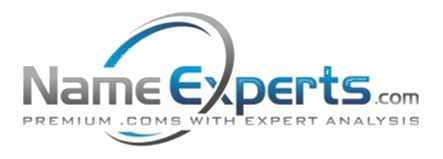.com is still relevant
As a super-premium domain broker and domain name valuation expert I am continually asked if the .com is still as relevant as it once was…The short answer is absolutely and here’s why…
Branding remains at the forefront of all carefully executed advertising or marketing campaigns. It’s imperative that your message is clean; concise and to the point. Some of the largest and most successful companies around the globe understand the importance of brand appeal.
The domain name is the “foundation” for the brand. The .com domain name adds equity, credibility, and is easily memorable. Often times, we refer to the .com as the beach front real estate.
Additionally, domain names are valuable and continue to retain that value. Most startups and brand managers understand the importance of the .com as consumers have been programmed for years to gravitate towards the .com.
This is still relevant today. In using this example, we can demonstrate the significance of the .com domain name.
Advertising and .com
Take for example, a sixty minute program on television. Within that hour, at least eighteen minutes are geared towards commercials. The rest of the time is actual programming.
There are six breaks of 3 minutes with six :30 commercials per break. Five out of Six brands advertise the .com in their marketing campaign. Furthermore, consumers have been programmed to gravitate towards .com.
Additionally, over the past twenty five years, top brands have acquired and marketed their companies with the top domain names, with every brand in the top 100 from 2015 marketing the .com.
Will advertising and marketing strategy shift?
Some would make the case that the .com is dying and losing value-especially with Mobile marketing continuing to grow. While there might be some validity to this notion, it’s not entirely true.
Most efforts to change the .com as the dominant tld revolve around small to medium-sized business. These companies continue to acquire alternatives for a fraction of the price of the .com
What does this mean for you?
Savvy brand managers and startups need to carefully select their brand and determine their scale and marketing reach. The .com is the only way to effectively add value to your brand, and increase that global appeal.
Remember, consumers have choices-more than ever and it’s important to make a good first impression. A dominant domain name is the cornerstone to any successful online presence.
In addition, Advertising is everywhere. As consumers, we are deluged with ads that saturate our minds with new products and services.
Finally, Take the challenge and review advertising best practices . Super premium and keyword-dominant .coms will continue to dominate the large-scale global appeal. .coms will continue to add value to your global brand.
We value your feedback. Please add a comment and join the conversation.



